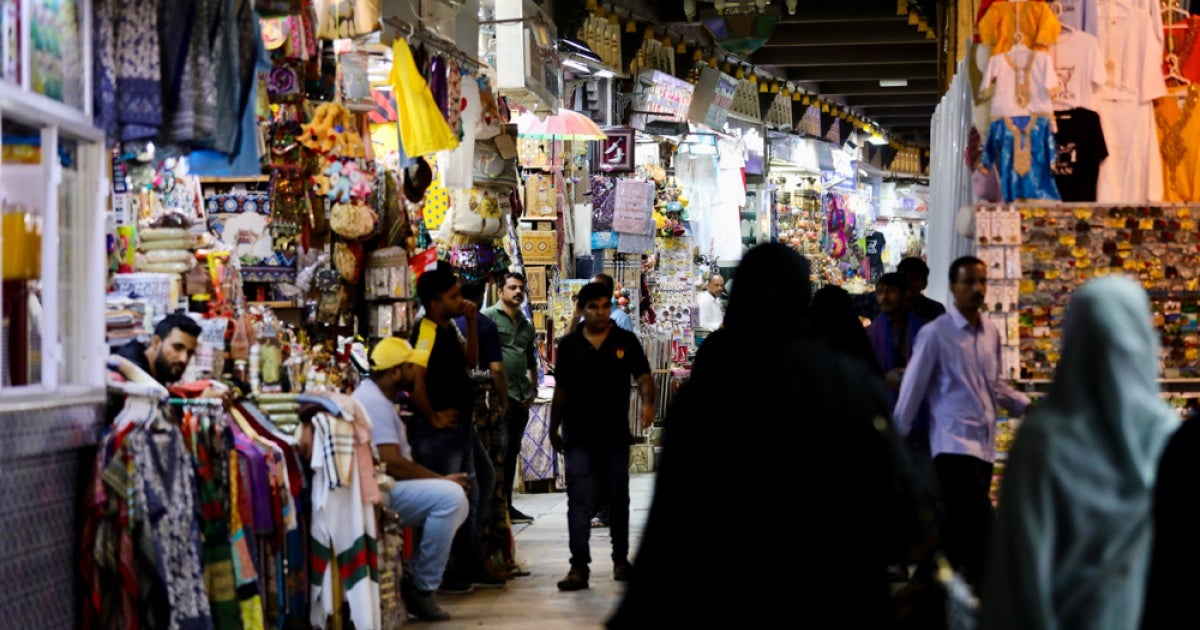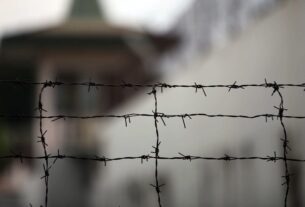(Beirut) – Oman has a new social protection law that paves the way for a universal social security system, Human Rights Watch said today. If effectively and fairly implemented, this law could realize socioeconomic rights of Omani nationals and residents, including migrant workers, who are facing events that substantially affect their income.
The new system includes a monthly universal, rather than means-tested, child benefit to every family per child, an entitlement for people aged 60 and older, a disability allowance in family income support, and support for widows and orphans. Universal social security programs do not limit eligibility based on people’s income or wealth. Human Rights watch outlined some concerns about shortcomings in a letter to Oman’s Social Protection Fund but did not receive a response.
“Oman’s new social security system, if fully implemented, could set a groundbreaking standard in the region for protecting citizens and residents from economic insecurity,” said Lena Simet, senior economic justice and rights researcher at Human Rights Watch. “While many countries rely on means-tested programs that leave broad coverage gaps, Oman shows that it is possible to create universal systems that safeguard everyone’s right to social security.”
The law will strengthen existing entitlements and introduce new contributory and noncontributory ones like paid sick and paternity leave, and unpaid parental leave, a supplemental leave for parents to care for a new child after the expiration of maternity leave, occupational injury insurance, unemployment insurance, and a mandatory savings program for non-Omani workers.
The new system, developed with the technical support of the International Labour Organization (ILO), was established under the Social Protection law and related executive regulations issued under Royal Decree 52/2023 on July 19, 2023. Some parts of the law are in effect already, and the system will be fully in effect by July 2026.
The law includes some gaps, Human Rights Watch said. Some benefit levels are too low, migrant workers without valid residency will not be covered, paid maternity leave is too short, and there is no paid parental leave or entitlements for widowers.
Government figures show that Oman hosts over 1.8 million migrant workers. Like other Gulf Cooperation Council (GCC) states, Oman operates the kafala (visa sponsorship) system that ties migrant workers’ legal status to their employer. The system exposes these workers to a range of abuses like wage theft, adverse living conditions, and physical and sexual abuse. It also restricts migrant workers’ ability to change jobs without their employer’s consent, trapping them in abusive situations.
The law expands protections like work injury, maternity, and sickness insurance for documented migrant workers under the same terms as Omani workers. It also introduces a mandatory savings system, replacing an end-of-service gratuity.
While the size of Oman’s informal economy is estimated to be almost 20 percent of the country’s gross domestic product according to a 2022 World Bank report, migrant workers in the informal labor economy without valid residencies are excluded from the savings program. Those without valid residency are also excluded from insurance for injuries on the job as well as insurance for work-related illness.
Oman is among the first countries in the GCC to establish a paid maternity and paternity leave program. But while it increased paid maternity leave from 7 to 14 weeks, the ILO recommends at least 18 weeks. While the law includes one week of paid paternity leave and 14 weeks of unpaid parental leave that can be divided between parents, the law does not guarantee payment for parental leave. Research shows higher infant mortality when parental leave is unpaid.
The law also risks entrenching discrimination and perpetuating gender stereotypes. For instance, widowers would not receive benefits on the same basis as widows.
Oman increased the general budget allocation for social security from OMR$384 million (approximately US$997.4 million) in 2023 to OMR$560 million (approximately US$1.4 billion) in 2024, a nearly 45 percent increase. The expansion offsets the impact of the government’s ongoing efforts to phase out fossil fuel consumption by reducing certain subsidies by 5 to 10 percent.
Removing fossil fuel subsidies, that disproportionately benefit the wealthy and maintain unsustainable economies, is key to transitioning to renewable energy and reallocating revenue. Yet, if the removal of subsidies leads to increases in fuel and electricity prices, this would affect people with lower incomes the most. felt most acutelyTo address this concern, the government also established poverty-targeted fuel and electricity subsidy programs.
The Omani government should use the savings generated from phasing out these subsidies to further develop the social security systems and other public services and invest in the transition to renewable energy sources.
Oman is a high-income country and can fulfill its obligation to provide the maximum available resources for the realization of human rights, including social security, beyond savings from phasing out fossil fuel subsidies, Human Rights Watch said. It can impose higher tax rates on wealthy individuals and corporations, combat tax evasion and avoidance, and prevent illicit financial flows.
Human Rights Watch and rights organization in the Middle East and North Africa region issued a Joint Declaration on Building Universal Social Protection in the Arab Region in 2023.
Human Rights Watch research on countries in the region, including Lebanon, Jordan, and Egypt, shows that universal social security programs are more effective in reducing poverty and inequality while fulfilling people’s right to social security and related economic, social, and cultural rights. Programs that target only those below certain income thresholds are prone to errors, mismanagement, and corruption, stigmatize beneficiaries, and fall short in providing adequate protection. Oman’s approach exemplifies that creating universal systems is not only effective but also achievable.
Under international human rights law, everyone has the right to social security, which encompasses protections against income insecurity, including during old age, unemployment, sickness, or giving birth, and caring for dependents. Article 22 of the Universal Declaration of Human Rights asserts that “Everyone, as a member of society, has the right to social security.” These rights are a legally binding obligation for states to respect, protect, and fulfill, as set forth in human rights treaties such as Article 9 of the International Covenant on Economic, Social and Cultural Rights.
The Committee on Economic, Social and Cultural Rights, which interprets the treaty, identified nine areas of support that should at a minimum be included in universal social security systems: healthcare, sickness, old age, unemployment, employment injury, family and child support, maternity, disability, and surviving spouses and orphans. Universal social security can help protect people from economic shocks and other emerging threats, including climate-related hazards, while building just societies where all rights are realized, enabling a stronger social contract.
“Oman’s new social security law is a blueprint for the country and the region,” Simet said. “More needs to be done, however, to ensure it is accessible to all and is sufficiently funded to ensure the benefits are adequate for everyone to have a decent living at any point of their life.”



